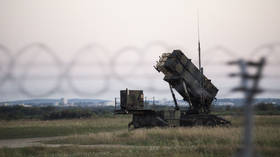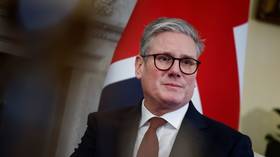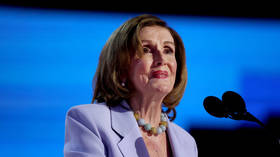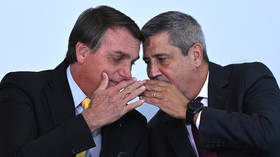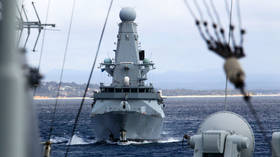Abkhazia rejects Georgian peace deal
A peace deal between Georgia and Abkhazia appears to be doomed, after the breakaway republic’s president rejected a German plan to resolve the conflict. Sergey Bagapsh says negotiations can’t occur until Georgia withdraws troops from part of Abkhazia.
Bagapsh added that Abkhazia does not intend to discuss its status as it has already been confirmed by the people of the republic. Abkhazia's leader stated his land is independent and the point needs no further discussion.
Sergey Bagapsh says they are ready to accept only the first point of Germany's proposals enclosing the non-use of force – and only after Georgia withdraws its military forces.
Germany’s Foreign Minister, Frank-Walter Steinmeier, has been trying to broker a deal during a trip to Tbilisi.
“I clearly outlined that our common proposal is based on the territorial integrity of Georgia. I can’t see any other way at this point except the gradual progress in this direction,” he said.
The plan's first stage was to restore trust between Georgia and Abkhazia, to convince the conflicting sides to sign a peace treaty, and ensure the return of Georgian refugees to Abkhazia.
The second stage was to start rebuilding the republic's infrastructure using funds donated to the German government by several other countries.
And the third part of the plan was to make an international decision on Abkhazia's status.
Georgian President Mikhail Saakashvili said: “That’s not a challenge to us. That's a challenge to the international community, to peace, to world order, to international law.
”Is international law still relevant? Or it has been killed by these Russian actions? I really hope it's relevant, I think that's why this kind of involvement, this kind of mediation is absolutely crucial."
Meanwhile, Russia's Foreign Minister Sergey Lavrov has said a pullout of Georgian troops from the Kodori Gorge and a non-aggression pact should be the next steps in order to ease tensions between Georgia and Abkhazia.
The comments were made after a meeting between Lavrov and Steinmeier outside Moscow.
“The plan put forward by Germany is absolutely right in its concept,” said Lavrov. “It embraces all sides of the problem, including difficult issues like the return of refugees and the economic rehabilitation of the conflict zone. And what’s most important it starts with the priority of a non-aggression agreement between the sides and the de-escalation of tensions in the Kodori gorge.”
Steinmeier said: “We know that in the situation between Georgia, Abkhazia and Russia there cannot be an easy solution. We can’t solve it in one night. That’s why we propose a step by step approach to solve this conflict.”
Abkhazia is a self-proclaimed republic that was made a part of Georgia during the Soviet era. After the fall of the USSR the region separated from mainland Georgia, angering authorities in Tbilisi.
The conflict claimed thousands of lives on both sides, and Russian peacekeepers were forced to step in. After the worst fighting a UN mission also entered the area, and both remain today.
Several countries, including Russia, the U.S. and Germany have offered their own peace plans. However, incidents at the border between Georgia and Abkhazia continue.
In May this year Russia increased its peacekeeping mission in the region fearing Georgian plans to start a military operation against Abkhazia.
One month later, a series of blasts shook the Abkhazian capital of Sukhumi, as well as Gagra and Gali, killing four and injuring at least a dozen people. Abkhazia blamed Tbilisi for organising the attacks. Georgia denied any involvement.
The current situation is causing huge concern in Moscow. Russia says both sides need to restore trust before a peace plan from Germany, or anyone else, can be applied.
The country’s Foreign Minister, Sergey Lavrov, said: “Signing an agreement on Georgian refugees' return to Abkhazia is impossible at the moment, as the situation first needs to be improved and trust restored. Only then can subsequent discussions be held on the matter.”
The return of the refugees is one of the key issues for Georgia. Several years ago, Abkhazia agreed to let 40,000 refugees into the Gali region. The West insists this process should continue, although some Abkhazians feel that nobody in Tbilisi, Washington or Berlin is talking too much about ethnic Abkhazians who fled their homes in Georgia and still cannot return.
Some topics, like lifting Georgia's economic sanctions on Abkhazia, seem to have received a positive response in Sukhumi. In April this year Russia lifted its economic sanctions, despite Georgia's objections and Tbilisi's refusal to do the same.


